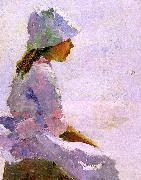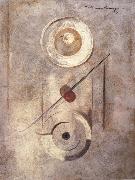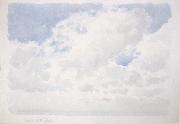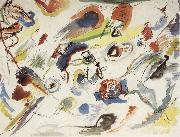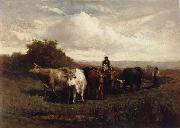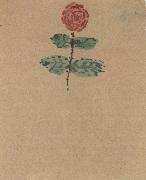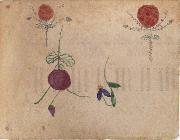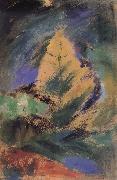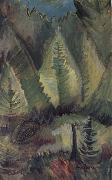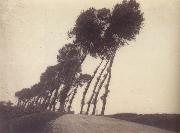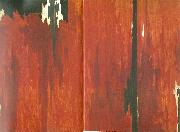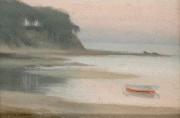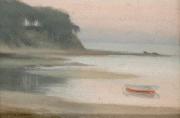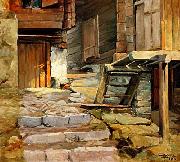Wholesale Oil Painting No Minimum |
|||||||||||
|
|
|||||||||||

|
|||||||||||
|
|
|
||||||||
|
|
||||||||
Untitled
Untitled Painting ID:: 1328 |
|
|||||||
|
|
||||||||
Charles Hawthorne1872-1930 Charles Webster Hawthorne (January 8, 1872 ?C November 29, 1930) was an American portrait and genre painter and a noted teacher who founded the Cape Cod School of Art in 1899. He was born in Maine, started as an office-boy in a stained-glass factory in New York, studied at night school and with Henry Siddons Mowbray and William Merritt Chase, and abroad in both Holland and Italy. When he was eighteen, Hawthorne went to New York and studied painting at the National Academy of Design and the Art Students League. Among his teachers were Frank Vincent DuMond and George de Forest Brush. But Hawthorne declared that the most dominant influence in his career was William Merritt Chase, with whom he worked as both a pupil and assistant. Both men were naturally talented teachers and figurative painters who were drawn to rich color and the lusciousness of oil paint as a medium. Chase passed on a Munich tradition of tone values and tone painting, and Hawthorne learned all he could. While studying abroad in Holland as Chase's assistant, Hawthorne was influenced to start his own school of art. His winters were spent in Paris and New York City, his summers at Provincetown, Massachusetts, the site of his school. While in Paris Hawthorne became a full member of the French Soci??t?? Nationale des Beaux-Arts in 1917. |
||||||||
|
|
||||||||
|
|
Untitled
Untitled Painting ID:: 4109 |
|
||||||
|
|
||||||||
Morton SchambergAmerican Painter and Architect , b.1881-d.1918 American painter and photographer. After training as an architect at the University of Pennsylvania, Philadelphia (A.B., 1903), he studied painting at the Pennsylvania Academy of the Fine Arts, also in Philadelphia, from 1903 to 1906 under William Merritt Chase, with whom he travelled to Europe. From 1907 to 1909 he lived mostly in Paris, where he saw the work of major avant-garde artists, including C?zanne, Picasso and Matisse, and benefited from contact with Leo Stein, an important collector and writer. By 1909 Schamberg had responded to the example of C?zanne's paintings, including simplified and more solid forms in his own work. Following his participation in the Armory Show in 1913, Cubism became the dominant element of his art, modified in such works as Figure B, Geometric Patterns |
||||||||
|
|
||||||||
|
|
Untitled
Untitled Painting ID:: 32014 |
mk77
1916
Oil on board
15 3/4x12in
mk77 1916 Oil on board 15 3/4x12in |
||||||
|
|
||||||||
James Walter Robert Lintonwater-colourist ,English. 1869-1947 Australian silversmith, jeweller, woodworker and painter of English birth. His father was the watercolourist Sir James Dromgole Linton (1840-1916). Having trained as a painter and architect in London, he travelled to Western Australia in 1896 and began practising metalwork after settling in Perth; he was appointed head of the art department of Perth Technical School in 1902. Following a trip to London in 1907, when he attended classes at the Sir John Cass Technical Institute under Harold Stabler, he concentrated on producing metalwork. Working in partnership with Arthur Cross, William Andrews and his own son Jamie Linton (1904-80), he produced ecclesiastical and domestic wares, presentation pieces and jewellery. His designs were influenced by British Arts and Crafts metalwork and were bold and simple, with decoration generally confined to hammered surfaces, twisted wire, hardstones and enamels. |
||||||||
|
|
||||||||
|
|
Untitled
Untitled Painting ID:: 33204 |
mk82
c.1920
Watercolour
27.2x39
mk82 c.1920 Watercolour 27.2x39 |
||||||
|
|
||||||||
Wassily Kandinsky1866-1944 Wassily Kandinsky Galleries was a Russian painter, printmaker and art theorist. One of the most famous 20th-century artists, he is credited with painting the first modern abstract works. Born in Moscow, Kandinsky spent his childhood in Odessa. He enrolled at the University of Moscow and chose to study law and economics. Quite successful in his profession??he was offered a professorship (chair of Roman Law) at the University of Dorpat??he started painting studies (life-drawing, sketching and anatomy) at the age of 30. In 1896 he settled in Munich and studied first in the private school of Anton Azbe and then at the Academy of Fine Arts, Munich. He went back to Moscow in 1914 after World War I started. He was unsympathetic to the official theories on art in Moscow and returned to Germany in 1921. There he taught at the Bauhaus school of art and architecture from 1922 until the Nazis closed it in 1933. He then moved to France where he lived the rest of his life, and became a French citizen in 1939. He died at Neuilly-sur-Seine in 1944. |
||||||||
|
|
||||||||
|
|
Untitled
Untitled Painting ID:: 34045 |
mk87
1910
Pencil watercolour and ink on paper
49.6x64.8cm
Paris,Musee National d'Art Moderne,Centre Georges Pompidou
mk87 1910 Pencil watercolour and ink on paper 49.6x64.8cm Paris,Musee National d'Art Moderne,Centre Georges Pompidou |
||||||
|
|
||||||||
Edward Mitchell BannisterBorn in Canada, Edward Mitchell Bannister moved to Boston in 1848 to work as a ship cook |
||||||||
|
|
||||||||
|
|
Untitled
Untitled Painting ID:: 38353 |
mk136
Oil on canvas
1880
mk136 Oil on canvas 1880 |
||||||
|
|
||||||||
Paul KleeGerman 1879-1940 Paul Klee Gallery was a Swiss painter of German nationality. His highly individual style was influenced by many different art trends, including expressionism, cubism, and surrealism. He was a student of orientalism. Klee was a natural draftsman who experimented with and eventually mastered color theory, and wrote extensively about it. His works reflect his dry humor and his sometimes child-like perspective, his personal moods and beliefs, and his musicality. He and his friend, the Russian painter Wassily Kandinsky, were also famous for teaching at the Bauhaus school of art and architecture. |
||||||||
|
|
||||||||
|
|
Untitled
Untitled Painting ID:: 38878 |
mk141
ca.1889
Watercolor on paper
11.2x9cm
mk141 ca.1889 Watercolor on paper 11.2x9cm |
||||||
|
|
||||||||
Paul KleeGerman 1879-1940 Paul Klee Gallery was a Swiss painter of German nationality. His highly individual style was influenced by many different art trends, including expressionism, cubism, and surrealism. He was a student of orientalism. Klee was a natural draftsman who experimented with and eventually mastered color theory, and wrote extensively about it. His works reflect his dry humor and his sometimes child-like perspective, his personal moods and beliefs, and his musicality. He and his friend, the Russian painter Wassily Kandinsky, were also famous for teaching at the Bauhaus school of art and architecture. |
||||||||
|
|
||||||||
|
|
Untitled
Untitled Painting ID:: 38879 |
mk141
ca.1889
Watercolor on paper
11x14.5cm
mk141 ca.1889 Watercolor on paper 11x14.5cm |
||||||
|
|
||||||||
Emily CarrCanadian Expressionist Painter, 1871-1945 Canadian painter and writer. She studied art from 1891 to 1894 at the California School of Design in San Francisco. She lived in England from 1899 to 1904, studying at the Westminster School of Art in 1899, and settled in Vancouver on her return. Her stay in Paris in 1910-11, during which she had a painting shown at the Salon d'Automne in 1911, proved far more influential on her art, familiarizing her with Impressionism, with Post-Impressionism and with Fauvism. |
||||||||
|
|
||||||||
|
|
Untitled
Untitled Painting ID:: 39886 |
mk152
c.1931-32
Oil on paper
45.6x30.0cm
mk152 c.1931-32 Oil on paper 45.6x30.0cm |
||||||
|
|
||||||||
Emily CarrCanadian Expressionist Painter, 1871-1945 Canadian painter and writer. She studied art from 1891 to 1894 at the California School of Design in San Francisco. She lived in England from 1899 to 1904, studying at the Westminster School of Art in 1899, and settled in Vancouver on her return. Her stay in Paris in 1910-11, during which she had a painting shown at the Salon d'Automne in 1911, proved far more influential on her art, familiarizing her with Impressionism, with Post-Impressionism and with Fauvism. |
||||||||
|
|
||||||||
|
|
Untitled
Untitled Painting ID:: 39891 |
mk152
c.1933-34
Oil on paper
91.0x57.8cm
mk152 c.1933-34 Oil on paper 91.0x57.8cm |
||||||
|
|
||||||||
Edgar DegasFrench Realist/Impressionist Painter and Sculptor, 1834-1917 French painter, draughtsman, printmaker, sculptor, pastellist, photographer and collector. He was a founder-member of the Impressionist group and the leader within it of the Realist tendency. He organized several of the group exhibitions, but after 1886 he showed his works very rarely and largely withdrew from the Parisian art world. As he was sufficiently wealthy, he was not constricted by the need to sell his work, and even his late pieces retain a vigour and a power to shock that is lacking in the contemporary productions of his Impressionist colleagues. |
||||||||
|
|
||||||||
|
|
Untitled
Untitled Painting ID:: 49210 |
mk194
1895
mk194 1895 |
||||||
|
|
||||||||
clyfford stillClyfford Still (November 30, 1904 - June 23, 1980) was an American painter, and one of the leading figures of Abstract Expressionism. Clyfford Still was a leader in the first generation of Abstract Expressionists who developed a new, powerful approach to painting in the years immediately following World War II. Still's contemporaries included Philip Guston, Franz Kline, Willem de Kooning, Robert Motherwell, Barnett Newman, Jackson Pollock, and Mark Rothko. Though the styles and approaches of these artists varied considerably, Abstract Expressionism is marked by abstract forms, expressive brushwork, and monumental scale, all of which were used to convey universal themes about creation, life, struggle, and death (the human condition), themes that took on a considerable relevance during and after World War II. Described by many as the most anti-traditional of the Abstract Expressionists, Still is credited with laying the groundwork for the movement. Still's shift from representational painting to abstraction occurred between 1938 and 1942, earlier than his colleagues, who continued to paint in figurative-surrealist styles well into the 1940s. Still was born in 1904 in Grandin, North Dakota and spent his childhood in Spokane, Washington and Bow Island in southern Alberta, Canada. Although Abstract Expressionism is identified as a New York movement, Still's formative works were created during various teaching posts on the West Coast, first in Washington State at Washington State University (1935-41). His work of this period is marked by an expressive figurative style used in depictions of the people, buildings, tools and machinery characteristic of farm life. By the late 1930s, he began to simplify his forms as he moved from representational painting toward abstraction. In 1941 Still relocated to the San Francisco Bay area where, following work in various war industries, he became a highly influential professor at the California School of Fine Arts and what is now known as the San Francisco Art Institute. He taught there from 1946-1950 (with a break in the summer of 1948 when he returned to New York). It was during this time when Still broke through to his mature style. Still also taught at Virginia Commonwealth University from 1943-45. |
||||||||
|
|
||||||||
|
|
untitled
untitled Painting ID:: 68969 |
1951-2
oil on canvas 288x396cm
se 1951-2 oil on canvas 288x396cm se |
||||||
|
|
||||||||
Clarice BeckettAustralian Painter, 1887-1935,Australian painter. She studied at the National Gallery School, Melbourne (1914-16), and with Max Meldrum became involved (c. 1917) with the Meldrum circle of artists, which included Colin Colahan (1897-1987), Justus Jorgensen (1893-1975), John Farmer (b 1897) and Percy Leason (1889-1959). In 1919 she moved to the seaside suburb of Beaumaris, where she lived and worked for the rest of her life. |
||||||||
|
|
||||||||
|
|
Untitled
Untitled Painting ID:: 79383 |
Untitled (Moored Boat, Bayside, painting, oil on board, 24.0 x 34.5 cm, by Clarice Beckett Untitled (Moored Boat, Bayside, painting, oil on board, 24.0 x 34.5 cm, by Clarice Beckett |
||||||
|
|
||||||||
Clarice BeckettAustralian Painter, 1887-1935,Australian painter. She studied at the National Gallery School, Melbourne (1914-16), and with Max Meldrum became involved (c. 1917) with the Meldrum circle of artists, which included Colin Colahan (1897-1987), Justus Jorgensen (1893-1975), John Farmer (b 1897) and Percy Leason (1889-1959). In 1919 she moved to the seaside suburb of Beaumaris, where she lived and worked for the rest of her life. |
||||||||
|
|
||||||||
|
|
Untitled
Untitled Painting ID:: 82328 |
oil on board, 24.0 x 34.5 cm, by Clarice Beckett
cyf oil on board, 24.0 x 34.5 cm, by Clarice Beckett cyf |
||||||
|
|
||||||||
Antonio Parreiras(1860 - 1937) was a Brazilian painter. Although much of his work was made up of historical and nude paintings, he expressed himself best in his landscapes, which combined European influences with those of his native Brazil. In 1883, Parreiras met German painter George Grimm, who taught landscape, flora and wildlife painting, while studying at Brazil's Fine Arts Imperial Academy. Grimm influenced Parreiras to move away from academic traditions of painting in favor of the direct observation of nature, free brushstrokes and luminosity. Parreiras traveled throughout Europe for a number of years, visiting many countries including Germany, Italy, and France, exhibiting his first female nude at the Salon in Paris in 1907. He continued to visit Europe after permanently returning to Brazil in 1914, and in 1929 received a gold medal in the Exposition International in Seville. Parreiras also founded the Plein Air School in Niterei, Brazil, and a museum holding many of his works, the Museum Antônio Parreiras, is also in Niterei. |
||||||||
|
|
||||||||
|
|
Untitled
Untitled Painting ID:: 96597 |
1920(1920)
Medium oil on canvas
Dimensions 50 X 55 cm
cyf 1920(1920) Medium oil on canvas Dimensions 50 X 55 cm cyf |
||||||
|
|
||||||||
|
Antonio Parreiras (1860 - 1937) was a Brazilian painter. Although much of his work was made up of historical and nude paintings, he expressed himself best in his landscapes, which combined European influences with those of his native Brazil. In 1883, Parreiras met German painter George Grimm, who taught landscape, flora and wildlife painting, while studying at Brazil's Fine Arts Imperial Academy. Grimm influenced Parreiras to move away from academic traditions of painting in favor of the direct observation of nature, free brushstrokes and luminosity. Parreiras traveled throughout Europe for a number of years, visiting many countries including Germany, Italy, and France, exhibiting his first female nude at the Salon in Paris in 1907. He continued to visit Europe after permanently returning to Brazil in 1914, and in 1929 received a gold medal in the Exposition International in Seville. Parreiras also founded the Plein Air School in Niterei, Brazil, and a museum holding many of his works, the Museum Antônio Parreiras, is also in Niterei. Untitled 1920(1920) Medium oil on canvas Dimensions 50 X 55 cm cyf |
||||||||
|
|
||||||||
|
Prev Next
|
||||||||
|
|
||||||||
|
Related Paintings to Antonio Parreiras :. |
||||||||
|
|
||||||||
|
CONTACT US |


